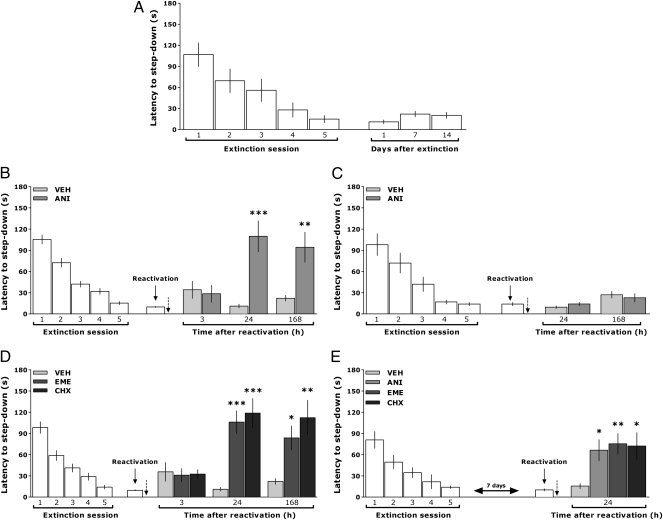Fig. 1.
Inhibition of hippocampal protein synthesis after reactivation hinders extinction memory. (A) Rats trained in the IA task using a 2-s 0.5-mA foot shock as an unconditioned stimulus were submitted to five extinction sessions 24, 48, 72, 96, and 120 h after training. Retention was evaluated 1, 7, or 14 d later. Note the absence of spontaneous recovery of the avoidance response. (B) Rats trained in the IA task were submitted to five extinction sessions 24, 48, 72, 96, and 120 h posttraining. One day later, extinction memory was reactivated; immediately thereafter, animals were given VEH or ANI in dorsal CA1. Retention was evaluated 3, 24, or 168 h later. (C) Rats were treated as in B except that VEH and ANI were given 6 h after reactivation. (D) Animals were treated as in B except that they received EME or CHX instead of ANI. (E) Rats were treated as in B and C except that reactivation was carried out 7 d after the last extinction training session (n = 10–12 per group). Bars represent the mean (±SEM) of step-down latencies. *P < 0.05; **P < 0.01; ***P < 0.001 using the Student t test or Bonferroni test after ANOVA. The dotted arrows indicate the moment of drug infusion.

